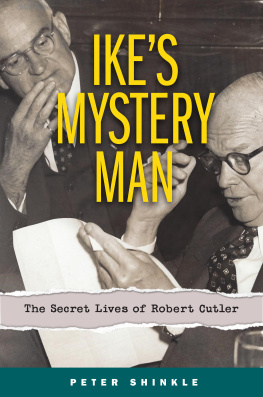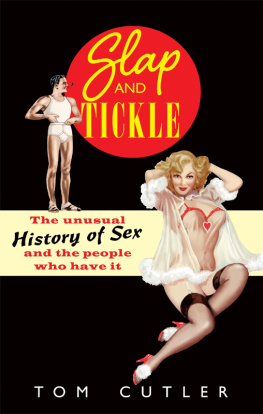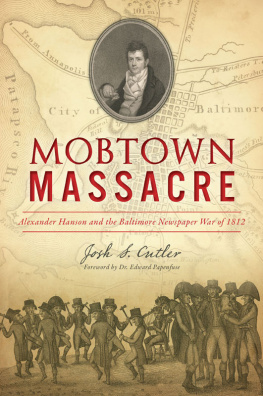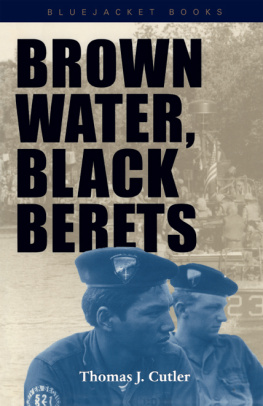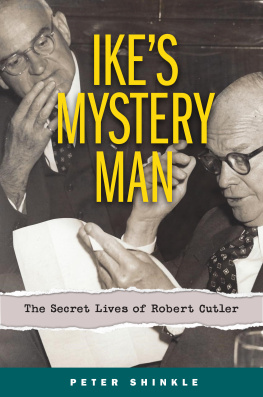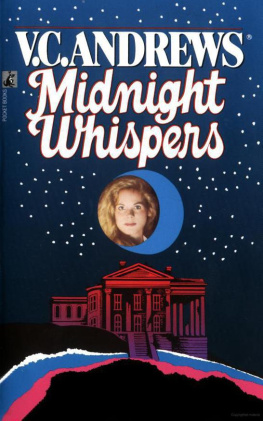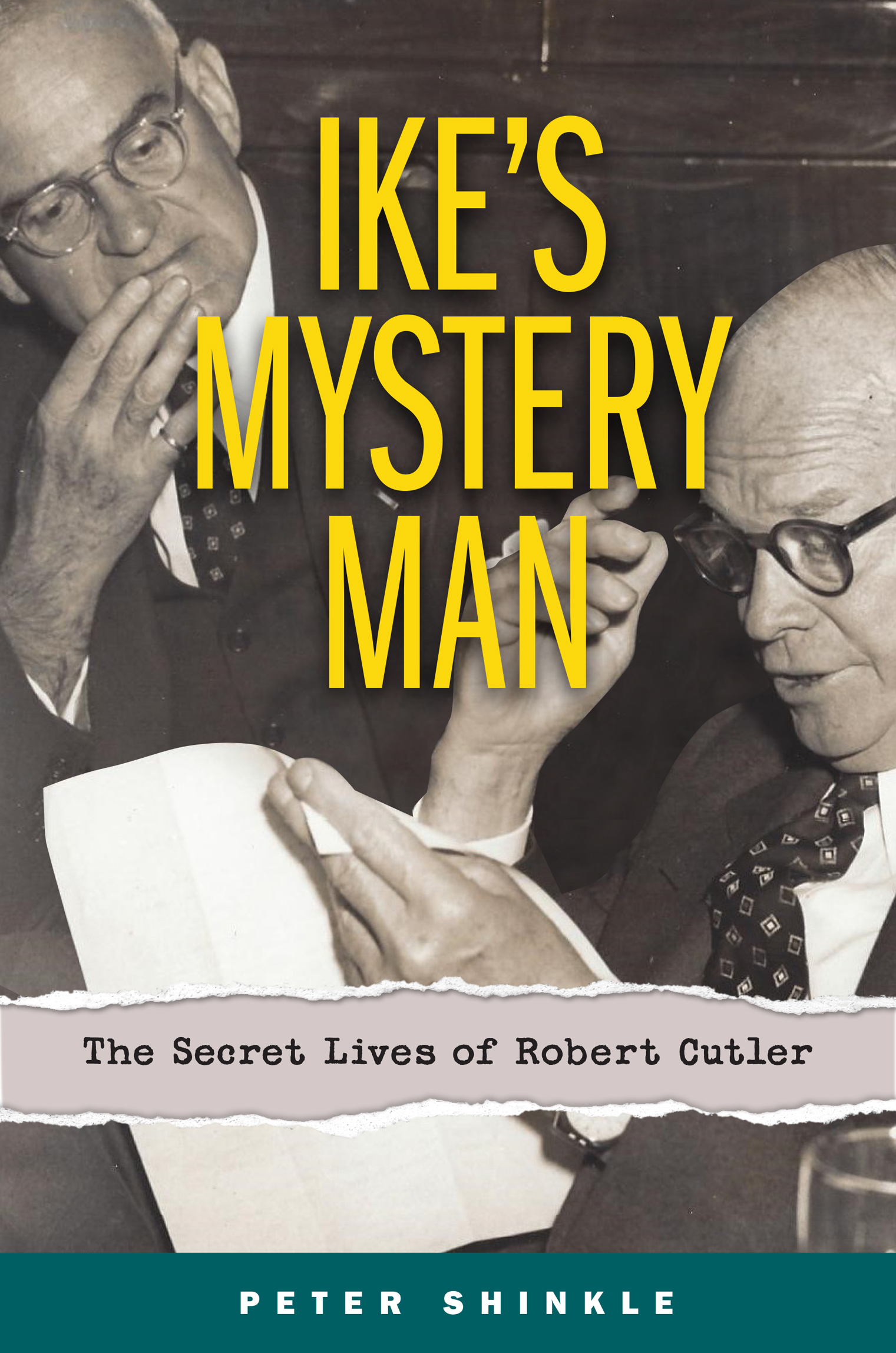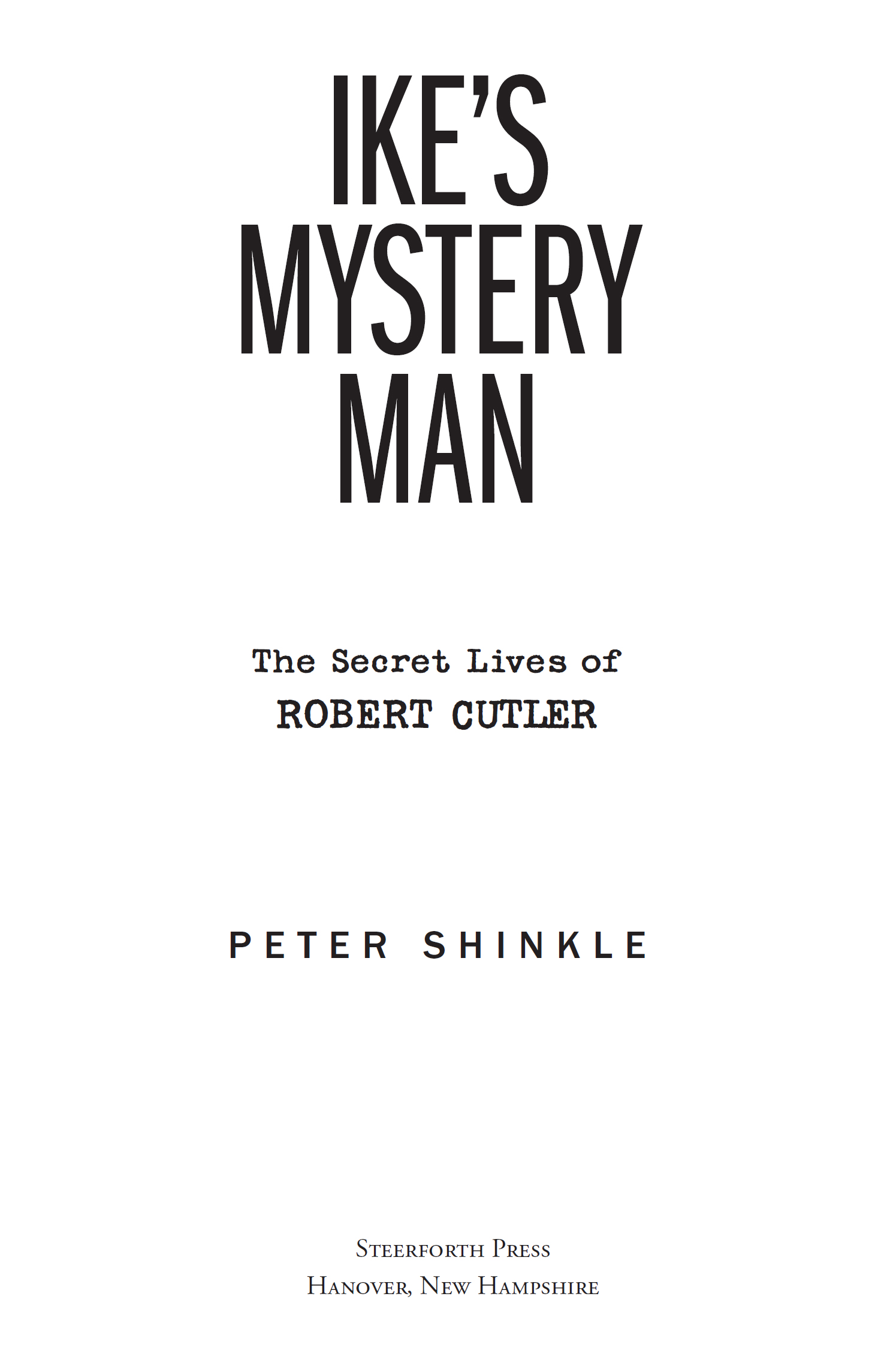Contents
Landmarks
Print Page List
More Praise for
Ikes Mystery Man: The Secret Lives of Robert Cutler
Ikes Mystery Man offers an extraordinary look inside the Eisenhower administration, exposing how one of the chief architects of American national security policy during the Cold War was a confirmed bachelor, even in the midst of Washingtons Lavender Scare. This fascinating chronicle of an elite circle of gay men welcomed into the social world of Mamie and Dwight Eisenhower demonstrates how extreme discretion and dissembling allowed some to survive the anti-gay purges. Novelists, playwrights and librettists have imagined gay romance within the civil service during this oppressive period. Thanks to the detective work of Peter Shinkle, we now have the diaries and love letters of one such complicated love.
David K. Johnson, author ofThe Lavender Scare: The Cold War
Persecution of Gays and Lesbians in the Federal Government
A fascinating look into the shadow world of the Cold War capital, a world too long in historys closet. It is also and not incidentally a tragic love story.
Gregg Herken, author ofThe Georgetown Set:
Friends and Rivals in Cold War Washington
Peter Shinkle tells the gripping tale of Bobby Cutlers two great loves one for another Eisenhower aide and the other for his country. Cutler transcended a climate of rabid homophobia to serve as Ikes right arm in crafting national security policy and transforming the role of the National Security Council.
David A. Nichols, author ofIke and McCarthy:
Dwight Eisenhowers Secret Campaign Against Joseph McCarthy
By at long last producing a biography of Robert Cutler, Shinkle has provided a valuable service to students of not only the Eisenhower administration but also the architecture of the US security state. At the same time he reveals a hidden dimension in the history of sexuality in the 1950s that is highly instructive.
Richard H. Immerman, Professor and Marvin Wachman Director
Emeritus Center for the Study of Force and Diplomacy at Temple University
Peter Shinkle masterfully interweaves two compelling stories. One sheds fresh perspective on Dwight Eisenhowers first national security advisor and his contributions to shaping Cold War policies; the second illuminates Bobby Cutlers sexual identity struggle and his personal relationships in an era when homosexuality was considered perversion and Eisenhowers own policies towards homosexuals were punitive. Ikes Mystery Man is a compelling, even heartbreaking story, told with sensitivity and keen insight. There is no other book like it.
Michael J. Birkner, Professor of History, Gettysburg College
Copyright 2018 Peter Shinkle
ALL RIGHTS RESERVED
For information about permission to reproduce selections from this book, write to:
Steerforth Press L.L.C., 45 Lyme Road, Suite 208,
Hanover, New Hampshire 03755
Book design by Peter Holm, Sterling Hill Productions
Cataloging-in-Publication Data is available from the Library of Congress
Ebook ISBN9781586422448
v5.4
a
To my parents
J UDITH C UTLER S HINKLE & J ACKSON J OHNSON S HINKLE
who taught me the importance of finding the truth
CONTENTS
PREFACE
A Republican and a devout Christian, Robert Cutler was a retired army general and bank president who helped Dwight Eisenhower win the presidential election of 1952. A lifelong bachelor, Cutler, whom everyone knew as Bobby, became a close friend of Ikes and someone the president trusted deeply. Shortly after the election, Ike appointed Bobby his top assistant for national security affairs. Two months into the new Eisenhower administration, in March 1953, Bobby proposed a reform of the National Security Council (NSC) that would create the position of special assistant for national security affairs, later referred to simply as national security advisor. Ike swiftly implemented Bobbys reform and named him the first person to hold the position, and Bobby managed the NSC in the following years to help the president make decisions on a broad array of Cold War national security issues, from nuclear weapons strategy to how best to undermine Soviet Communism. Bobby knew many of the nations high-level Cold War secrets, worked long hours, kept a low profile, and refused to speak to the press. He was soon dubbed the Mystery Man of the White House.
Yet something in addition to policy and national security may have heightened Bobbys insistence on secrecy. After taking office in 1953, Bobby hired a Russian-speaking naval intelligence officer, Tilghman B. Skip Koons, to work on the NSC staff. Though he was twice Skips age, Bobby developed passionate feelings for the young NSC staffer, an emotional obsession that lasted for years, as Bobbys private diary reveals.
The fact that Bobby fell in love with a young male employee of the NSC may not be shocking today. What is striking is that Bobbys passion for Skip blossomed in the superheated crucible of the White House national security apparatus amid the Cold War, McCarthyism, and the purge of homosexuals the so-called Lavender Scare that gripped the federal government in the 1950s. Bobby didnt let questions about his sexuality stop him from accompanying Ike on his 1952 campaign train, meeting with Joe McCarthy, and being friendly with Director of the Federal Bureau of Investigation J. Edgar Hoover even after Hoover investigated him for homosexuality.
Bobby played the role of the straight bachelor out of necessity, and he played it very well. In early 1953, for instance, he steered the drafting of Ikes notorious Executive Order 10450, which banned gays from employment by the federal government. Yet behind the mask of the highly skilled national security specialist, in a secret life amid all the secrets he kept, Bobby was a man who struggled profoundly to find, recognize, and accept his sexual and romantic orientation.
Bobby was an unusual figure in American political life, a Republican who easily crossed party lines and worked closely with Democrats, almost unthinkable in todays intensely polarized political climate. In 1944, he carried out President Roosevelts policy to enable all soldiers overseas to vote, clashing with segregationists in Congress who saw the move as a bid to gain access to the ballot box for black southerners. In fact, Bobby crossed all sorts of lines. He advocated for J. Robert Oppenheimer after the controversial nuclear physicist raised concerns about the dangers of the nuclear arms race. Yet when Oppenheimer fell under investigation for his Communist ties, Ike asked Bobby to help engineer Oppenheimers ouster. Bobby did so, but still embraced Oppenheimers cause and later advanced a plan to sharply reduce the US nuclear weapons buildup.
The razors edge on which Bobby walked is illustrated by his relationship with Hoover. The FBI director needed Bobbys help because Bobby was his primary conduit to Eisenhower, and Bobby needed Hoovers help with national security matters. Both men, aging bachelors with a fondness for male company, were trailed by suspicions of homosexuality. When Hoover himself investigated Bobbys ties to other White House homosexuals in 1957, Bobby must have felt intense pressure.

